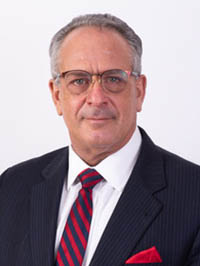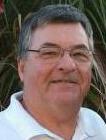To Thine Own Self Be True – The Ethical Responsibilities of a Tax Professional
Tuesday, November 11, 2025 · 2:00 – 3:40 PM ET
You have one year from airing date to use this course as credit.
Continuing Education
CPE Program Knowledge Level: Ethics
2 CPE Credit; NO prerequisites or advance preparation
CTEC Course #: 3022-CE-0177
IRS/RPO Approved Program
#7ZBUJ-E-00128-25-O (Online/Group) Live (Group-Internet Based)
#7ZBUJ-E-00128-25-S (QAS Self Study) Archive
Ethics (2 Hours)

Program Content
This online learning program, presented as a live webcast, will be also archived for QAS Self Study. The program will be available for viewing for 12 months after the live webcast. A panel of IRS and industry experts will present the content during a live, interactive discussion, where participant questions can be submitted. Questions will be answered live on the program or posted on the Resources page
The program, through a lively round-table discussion and real time interaction with the audience, examines the changes that affect the rules governing practice before the IRS and the prospects for additional changes. The program will focus on how the IRS assures that practitioners maintain the highest ethical standards. Panelists also will focus on ethical problems most often faced by tax practitioners, the dilemma when a client's wishes clash with a professional's responsibilities, and the penalties that may be imposed on practitioners.
By the end of the program, participants will have a practical understanding, through accurate, current, and effectively designed communications, of the ethical obligations of practitioners, the enforcement of those ethical obligations, the penalties imposed on practitioners who fall short, and the resolution of conflicts that arise between client and the professional's responsibilities.
Program Learning Objectives
- Identify any recent and proposed changes to Circular 230, governing practice before the IRS.
- Identify the conflicts that arise in trying to satisfy clients and how best to resolve those conflicts.
- Identify the role OPR plays in ensuring professionals live up to the highest ethical standards.
- Identify the penalties that may be imposed on professionals who fall short of their code of conduct.
Program Outline
Circular 230
- Exactly What Is Circular 230?
- What Is Practice Before the IRS?
- Who Is Subject to Circular 230?
- Recent Developments
- Proposed Changes
Duties of a Tax Professional
- Due Diligence
- Competence
- Protection for Client’s Records
- Multi-Party Representation
- Excessive or Unconscionable Fees
- Other Duties
Office of Professional Responsibility
- OPR’s Function and Extent of Authority
- Tax Professional’s Rights in OPR Actions
- Representation Before OPR
- Sanctions OPR May Impose
Best Practices to Avoid Penalties
- Failure to Follow Procedures
- Disclosure or Use of Return Information
- Lack of Diligence
- Aiding or Abetting Tax Liability Understatements
Panelists
Moderator

Alan Pinck, EA
A. Pinck & Associates
Alan Pinck is an Enrolled Agent with over 30 years of tax preparation experience in the San Francisco Bay Area. He has built a practice specializing in individual, small business tax preparation and audit representation. You have seen Alan presenting at NTPI events, CSEA Super Seminar, Spidell Publishing as well as a variety of other presentations for tax groups and small business associations. Having represented thousands of tax returns in audit, Alan has obtained tremendous insight of the audit process as well as knowledge on a wide variety of tax issues.
IRS Panelists
Coming soon...
Industry Panelists
Coming soon...
Content Consultant

David F. Windish, J.D., LL.M
Content Consultant
David F. Windish, J.D., LL.M. in taxation, is a tax attorney and consultant. He has served as an instructor of tax-advantaged investments at the New York Institute of Finance; an Instructor of business law at the U.S. Merchant Marine Academy, Kings Point, N.Y.; and an adjunct professor at George Mason University, Fairfax, Va. He has also served as executive editor for Tax Analysts; managing editor for Business Strategies, published by CCH; and senior editor for the Institute for Business Planning.
Mr. Windish is the author of Practical Guide to Real Estate Taxation, published by CCH and currently going into its sixth edition. Earlier works include Tax Advantaged Investments and Investor's Guide to Limited Partnerships, both published by the New York Institute of Finance. Through the Center for Video Education, he authored continuing education courses dealing with real estate and closely held corporations. Those courses included readings, case studies, and videotape segments.
Mr. Windish is a graduate of Rutgers University Law School and the New York University School of Law, Graduate Division. He has been heard as a guest speaker at professional meetings and seminars and on popular radio programs.